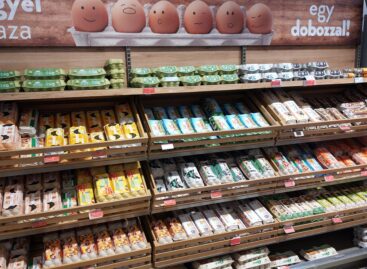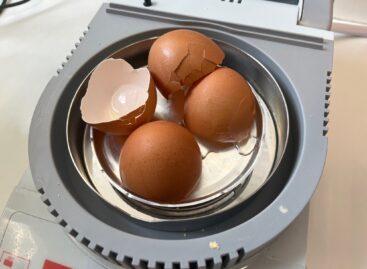The price of eggs fluctuates
The trends in egg prices and consumption in Hungary are significantly cyclical, influenced by the increased demand during the Easter and Christmas seasons and a decline during the summer months. In an interview with InfoRádió, Gergely Pákozd, Vice President of the Hungarian Egg Association, stated that producers prepare for these annual cycles.
 Demand can rise by as much as 30-40% during festive periods, whereas a substantial decrease is observed in the summer. The long breeding period of laying hens limits rapid adaptation to fluctuating demand; however, farmers strive to optimize flock rotation through the deployment and redeployment of old and new stocks.
Demand can rise by as much as 30-40% during festive periods, whereas a substantial decrease is observed in the summer. The long breeding period of laying hens limits rapid adaptation to fluctuating demand; however, farmers strive to optimize flock rotation through the deployment and redeployment of old and new stocks.
Currently, there is an oversupply in the market, which is putting pressure on prices. It would be beneficial for producers to stabilize these fluctuations, as it would not only secure the livelihood of farmers but also make budget planning for consumers more predictable. Achieving price stability would require long-term contracts, which contrasts with the current practice based on short-term contracts focused on maximizing profits.
Related news
From caged eggs to alternative production
🎧 Hallgasd a cikket: Lejátszás Szünet Folytatás Leállítás Nyelv: Auto…
Read more >Related news
II. Green Gastronomy – Marketing Communication Workshop organized by the MMSZ HoReCa and Green Section
🎧 Hallgasd a cikket: Lejátszás Szünet Folytatás Leállítás Nyelv: Auto…
Read more >Retail sales of organic products in Hungary increased by 13.9% – our country is the second fastest growing market in the European Union
🎧 Hallgasd a cikket: Lejátszás Szünet Folytatás Leállítás Nyelv: Auto…
Read more >








